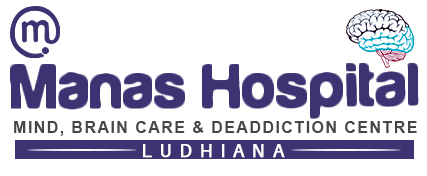
A comprehensive guidance to understand everything about depression.
Most of the humans are suffering from depression; there are several reasons behind it. The major cause of depression is overthinking. People think about several things that are the reason for depression. It is a mental illness. People become hopeless and prefer to live alone when they have depression.
The definition of depression.
Depression is a mental health condition. In this situation, the patient is hopeless, and it also affects the physical health and personal life of a person. A person with depression suffers from a persistent feeling of sadness and exhibits a lack of interest in things around them, although not everyone who is depressed cries all the time. A Patient goes through episodes in which he or she feels low and empty, and the majority of people undergo it and are not aware of the adverse effects it can cause on the body. The best doctors can give you the proper Depression treatment in Ludhiana.
What are the causes of depression?
Depression is a complex condition. There are different factors that are responsible for it.
Biological factors:
- Genetics: The depression history of the family increases the risk of depression.
- Brain chemistry: Imbalance in the neuron system, like dopamine, plays a crucial role.
Physical health issues
- Chronic illness: some health conditions and problems like heart disease, diabetes, and chronic pain.
- Change in hormones: Imbalances in the hormones that occur during pregnancy, postpartum, and menopause can cause depression.
Psychological Factors:
- Personality Traits: Certain personality types may be more prone to depression.
- Trauma: Past physical, emotional, or sexual abuse can contribute.
- Grief and Loss: Significant life events, like the death of a loved one or a major life change.
Environmental Factors:
- Stressful Life Events: Financial problems, work-related stress, or relationship difficulties.
- Childhood Trauma: Adverse experiences during childhood may increase vulnerability.
Medications and Substance Abuse:
- Several medicines have depressive side effects, which can be responsible for the occurring depression.
- People consume drugs and alcohol to reduce stress, but it acts as a form of Substance abuse that contributes to depression.
Family History:
- If your family has any history of depression and any other mental health disorders, then there are chances of occurring depression.
Social Isolation:
- Lack of a strong support system and social isolation may contribute to depression.
Cognitive Factors:
- Negative thought patterns, low self-esteem, and distorted thinking may contribute.
Symptoms of the depression
- Feeling sadness, tearfulness, emptiness and hopelessness.
- Angry and frustrated
- Loss of interest in normal activities like hobbies and sports
- Sleep disturbance
- Tiredness and lack of energy
- Reduce appetite
- Anxiety and restlessness.
- Slowed thinking, speaking or body movements
- Feelings of worthlessness or guilt, fixating on past failures or self-blame
- Trouble thinking, concentrating, making decisions and remembering things
- Frequent or recurrent thoughts of death, suicidal thoughts, suicide attempts or suicide
- Unexplained physical problems, such as back pain or headaches
How does depression affect human physical health?
- Change in sleeping patterns: Depression leads to a disturbance in sleep patterns. It causes some sleeping problems in some cases. People also suffer from sleeplessness. It is the type of altered sleep in which individuals are affected by the day to day activities. It gradually shows the negative effects on overall well-being.
- Eating-related problems: in this era, people are suffering from depression, and it can also change their eating patterns. It ultimately affects their body. Some people may eat more, thereby gaining weight, becoming obese, and becoming susceptible to chronic lifestyle diseases in the future.
- Poor concentration: A person suffering from depression suffers from poor concentration in conducting the simplest of tasks. People also have low concentration, and if they suffer from chronic depression, their focus is severely affected, and they start having trouble at work and even in their social lives.
- Exhaustion: Individuals suffering from depression tend to feel fatigued, which is one of the most common effects of depression. It makes simple everyday tasks appear complicated, and while some may mistake this as a result of less sleep, it is a side effect of depression
- Addiction: When an individual is depressed, then they get addicted to some destructive habits like alcoholism, smoking, and drug abuse, among others. All this can affect the body and make them suffer even more. In some cases, in the condition of drunk people get suicidal thoughts and even try to end their life.
- Losing interest in life: People who have depression have lost interest in their lives, and they become unable to enjoy the things going on around them. They stop doing activities that earlier brought them joy and hesitate to interact with people and make friends. This change in behavior can be due to the fatigue caused by depression.
Depression is a mental health condition. Acknowledging its diverse origins is vital in fostering understanding and empathy. Seeking professional support and open dialogue are essential steps toward effective management and breaking the stigma surrounding mental health. If you are suffering from depression then visit Manas Hospital for a consultation with the best Psychiatrist in Punjab.






